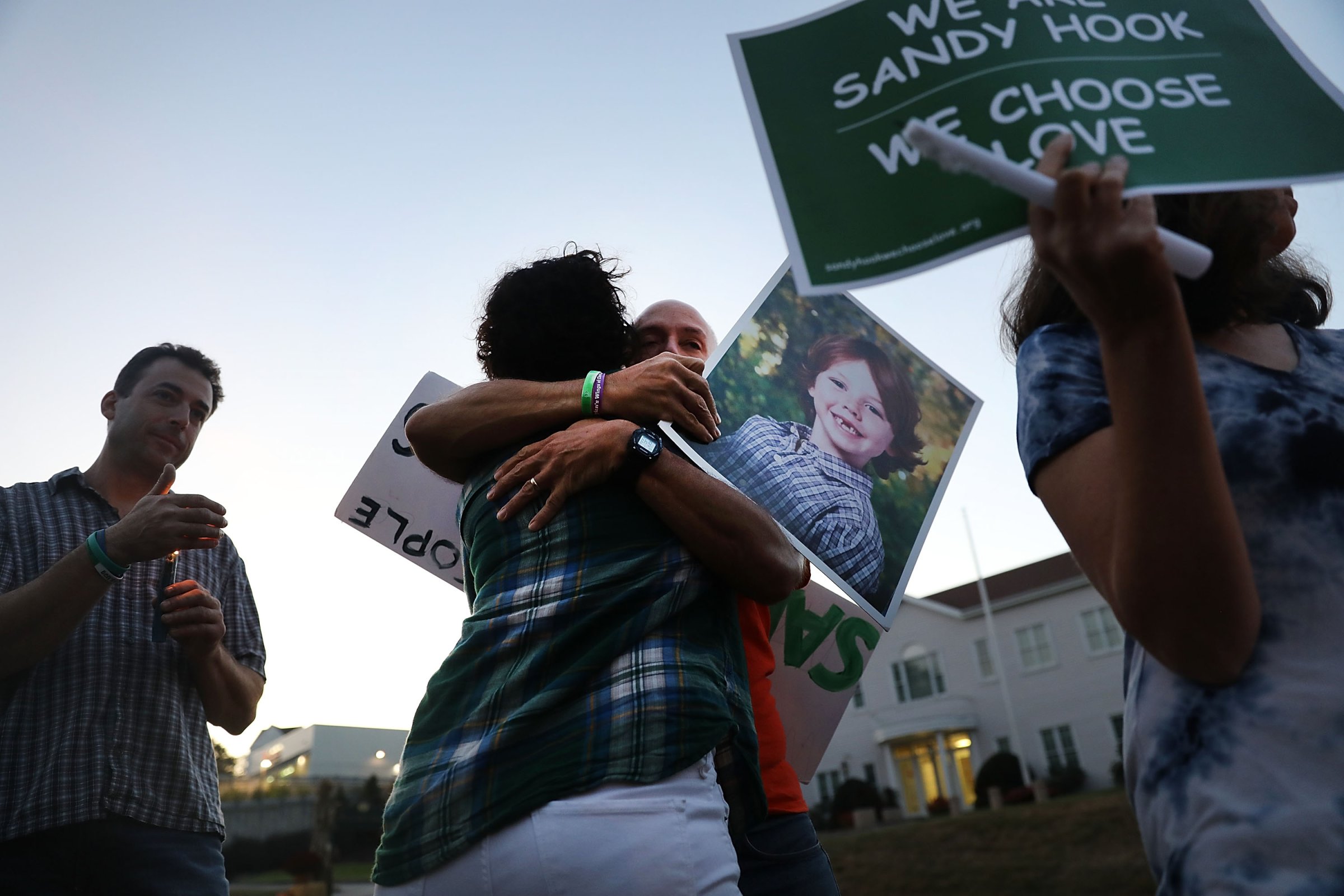
Remington Arms will pay nine families who lost loved ones in the Sandy Hook Elementary School shooting $73 million to settle a wrongful death lawsuit, attorneys announced Tuesday, the first time a U.S. gun manufacturer has been held liable in a mass shooting and a legal outcome that could open the door to future lawsuits against gun makers.
The settlement ends a landmark lawsuit over how Remington marketed the rifle used in the massacre in Newtown, Conn. on Dec. 14, 2012, and it saves the gun maker from having to reveal any potentially incriminating evidence about its marketing practices at trial. Twenty children and six educators were killed when a gunman opened fire in the school.
Josh Koskoff, the attorney representing the families, hailed the outcome as historic. It’s nearly impossible for gun makers to be held responsible for the use of their products in mass shootings due to a federal law that largely shields them from liability.
“These nine families have shared a single goal from the very beginning: to do whatever they could to help prevent the next Sandy Hook,” Koskoff said. “It is hard to imagine an outcome that better accomplishes that goal.”
Remington had offered to settle in July for $33 million, he said, but families rejected the offer because they wanted to first prove wrongdoing by the company. Koskoff says they obtained thousands of internal company documents and conducted multiple depositions of Remington’s leadership and marketing team to do that.
Koskoff added that the settlement should be a “wake-up call” to the gun industry largely immune to lawsuits under the 2005 law, which has widely deterred families from targeting gun makers in court. There are a few exceptions, such as if a defective weapon causes death or injury, or if a seller or manufacturer is found to have violated a law in the marketing or sale of the product.
Remington had argued it was protected under the law, but the families’ suit, filed in 2014, said the federal law did not apply because they were accusing Remington of violating state laws in the marketing of the weapon. In March 2019, the Connecticut Supreme Court agreed. Remington appealed to the U.S. Supreme Court, which declined to hear the case.
The case had been headed to a jury trial this year. If that had happened, experts say Remington could have been forced to provide documents that could yield damaging internal memos—similar to the way a major civil settlement in 1998 forced the tobacco industry to disclose millions of pages of internal communications that revealed deceptive marketing practices.
An attorney for Remington, the nation’s oldest gun manufacturer, did not immediately comment Tuesday.
At a news conference, families of five children and four adults killed in the shooting remembered the loved ones they lost, as they expressed relief that the gun industry is no longer invincible.
The closest Nicole Hockley gets to her 6-year-old son Dylan now is by kissing his urn every night. “My hope is that by facing and finally being penalized for the impact of their work, gun companies, along with the insurance and banking industries that enable them, will be forced to make their business practices safer than they have ever been,” Hockley said.
For Veronique De La Rosa, whose son Noah was killed in the shooting, the outcome is “neither redemptive nor restorative,” because her loss is irreversible. “Every day is a realization that he should be there, and he is not,” she said.
“However, the resolution does provide a measure of accountability in an industry that has thus far operated with impunity,” she adds. “For this, we are grateful.”
More Must-Reads from TIME
- Cybersecurity Experts Are Sounding the Alarm on DOGE
- Meet the 2025 Women of the Year
- The Harsh Truth About Disability Inclusion
- Why Do More Young Adults Have Cancer?
- Colman Domingo Leads With Radical Love
- How to Get Better at Doing Things Alone
- Michelle Zauner Stares Down the Darkness
Contact us at letters@time.com